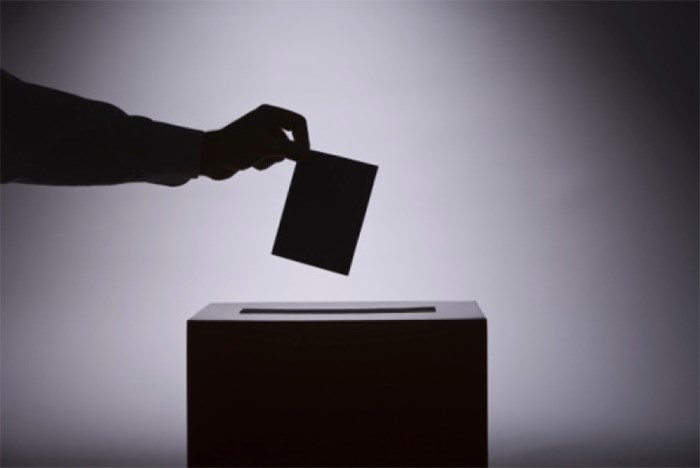Six months ago, Â鶹´«Ă˝Ół»City Council passed a unanimous motion to ask the provincial government to “make the necessary changes” that would allow permanent residents to cast ballots in municipal elections.
In Canada, permanent residents are eligible for most social benefits that Canadian citizens receive – including health care coverage – and are protected under Canadian law and the Canadian Charter of Rights and Freedoms. Permanent residents can live, work or study anywhere in the country, and are required to pay taxes and respect all Canadian laws at the federal, provincial and municipal levels.
 Ballot box/Shutterstock
Ballot box/Shutterstock
The one thing permanent residents cannot do is cast ballots in elections. Many permanent residents choose to become citizens of Canada after a few years in the country, but this process can be costly, especially for low-income families.
The idea of allowing permanent residents to vote might seem new, but there are other jurisdictions around the world where people who are not citizens have a say in the formation of their municipal government. Australia and Colombia are just two countries where foreigners who have not attained citizenship, but who reside and pay taxes in specific municipalities, have the opportunity to vote for their local representatives.
In spite of the many efforts from municipal governments to provide registered voters with the opportunity to cast ballots, the turnout level in last month’s municipal election was very low across the province. In Vancouver, it dropped below 40 per cent after briefly climbing over this symbolic threshold in 2011.
It is calculated that 60,000 permanent residents currently live in the City of Â鶹´«Ă˝Ół»alone. To put things in perspective, only two council contenders – the Green Party’s Adriane Carr and Pete Fry – were supported by more than 60,000 voters.
It was practically impossible to allow permanent residents to vote before last month’s municipal election, but the idea is popular. A Research Co. poll conducted in late April, after the City Council motion was passed, showed that 57 per cent of Vancouverites would welcome the idea of permanent residents voting in municipal elections.
In September, Research Co. conducted a new survey on behalf of Fresh Voices, an organization that helps immigrant and refugee youth in the province. The poll included the entire Metro Â鶹´«Ă˝Ół»area, and segmented residents in three groups: citizens born in Canada, citizens who immigrated to Canada and permanent residents.
The results confirmed that what we had seen in Â鶹´«Ă˝Ół»would apply to the entire Metro area. Three in five Metro Vancouverites (61 per cent) voiced support for allowing permanent residents to vote in municipal elections. A similar proportion (60 per cent) said enabling this change would “definitely” or “probably” strengthen democracy at the municipal level.
One thing that caught my eye as the survey was being conducted was the high level of political engagement from permanent residents. These supposed newcomers to Canada are already more likely to participate in some aspects of political life – such as donating money to organizations, engaging in volunteer work and joining political campaigns – than those who were born in Canada or attained citizenship after immigrating.
Many permanent residents volunteered in the recent municipal campaigns. Many candidates knocked on the doors of permanent residents, only to be told that the dwellers could not cast a ballot (yet).
There are several factors that need to be investigated further before any decisions are made. One of them is establishing a threshold for residency in the event permanent residents are ultimately allowed to vote municipally. In the survey, 43 per cent of Metro Vancouverites suggested that permanent residents should be in Canada for at least five years before casting ballots in municipal elections. One third (32 per cent) called for a higher threshold of 10 years.
The outcome of the municipal elections has led to conversations about the role ethnicity plays in our political choices. Our municipalities appear to be diverse, but councils and other elected bodies may not reflect it.
The provincial government should take the request to consider granting municipal voting rights to permanent residents very seriously. There will be moments of uncertainty and the inevitable bigotry that has already been displayed (usually anonymously) on social media towards the proponents of this change. Still, finding a way for permanent residents who are already engaged in the political process to take part can boost democracy in all of the province’s municipalities.
At specific points in our country’s history, our governments looked at women and Aboriginal Canadians as unworthy of the right to vote. This year, it’s a right that fewer than half of citizens chose to exercise in British Columbia, and one that many permanent residents would relish.


